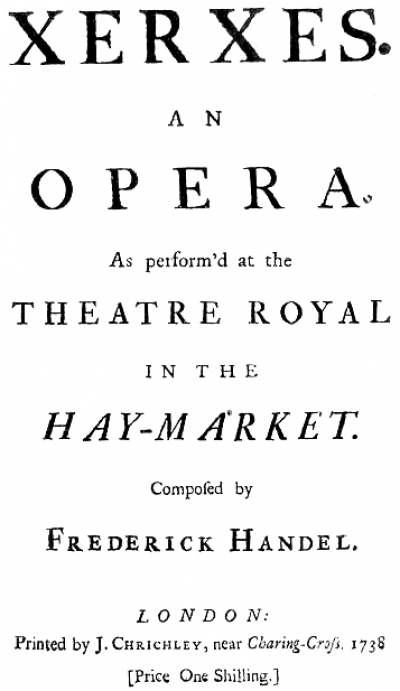George Frideric (or Frederick) Handel (; baptised Georg Friedrich Hndel, German: [ek fid hndl] (listen); 23 February 1685 14 April 1759) was a German-British Baroque composer well known for his operas, oratorios, anthems, concerti grossi, and organ concertos. Handel received his training in Halle and worked as a composer in Hamburg and Italy before settling in London in 1712, where he spent the bulk of his career and became a naturalised British subject in 1727. He was strongly influenced both by the middle-German polyphonic choral tradition and by composers of the Italian Baroque. In turn, Handel's music forms one of the peaks of the "high baroque" style, bringing Italian opera to its highest development, creating the genres of English oratorio and organ concerto, and introducing a new style into English church music. He is consistently recognized as one of the greatest composers of his age.Handel started three commercial opera companies to supply the English nobility with Italian opera. In 1737, he had a physical breakdown, changed direction creatively, and addressed the middle class and made a transition to English choral works. After his success with Messiah (1742), he never composed an Italian opera again. His orchestral Water Music and Music for the Royal Fireworks remain steadfastly popular. One of his four coronation anthems, Zadok the Priest, has been performed at every British coronation since 1727. Almost blind, he died in 1759, a respected and rich man, and was given a state funeral at Westminster Abbey.
Handel composed more than forty opere serie over a period of more than thirty years. Since the late 1960s, interest in Handel's music has grown. The musicologist Winton Dean wrote that "Handel was not only a great composer; he was a dramatic genius of the first order." His music was admired by Classical-era composers, including Mozart, Haydn and Beethoven.
Serse (Italian pronunciation: [ˈsɛrse]; English title: Xerxes; HWV 40) is an opera seria in three acts by George Frideric Handel. It was first performed in London on 15 April 1738. The Italian libretto was adapted by an unknown hand from that by Silvio Stampiglia (1664–1725) for an earlier opera of the same name by Giovanni Bononcini in 1694. Stampiglia's libretto was itself based on one by Nicolò Minato (ca.1627–1698) that was set by Francesco Cavalli in 1654. The opera is set in Persia (modern-day Iran) about 470 BC and is very loosely based upon Xerxes I of Persia. Serse, originally sung by a mezzo-soprano castrato, is now usually performed by a female mezzo-soprano or countertenor.
The opening aria, "Ombra mai fu", sung by Xerxes to a plane tree (Platanus orientalis), is set to one of Handel's best-known melodies, and is often known as Handel's "Largo" (despite being marked "larghetto" in the score).

1738Apr, 15
Serse, an Italian opera by George Frideric Handel receives its premiere performance in London, England.
Choose Another Date
Events on 1738
- 15Apr
George Frideric Handel
Serse, an Italian opera by George Frideric Handel receives its premiere performance in London, England. - 24May
Aldersgate Day
John Wesley is converted, essentially launching the Methodist movement; the day is celebrated annually by Methodists as Aldersgate Day and a church service is generally held on the preceding Sunday. - 25May
Cresap's War
A treaty between Pennsylvania and Maryland ends the Conojocular War with settlement of a boundary dispute and exchange of prisoners. - 20Jul
Lake Michigan
Canadian explorer Pierre Gaultier de Varennes et de La Vérendrye reaches the western shore of Lake Michigan.

 English
English  español
español  français
français  português
português  русский
русский  العربية
العربية  简体中文
简体中文 